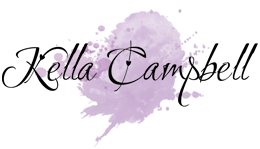Okay. I’m a bit stunned that more authors don’t set up their Amazon author pages and claim their books. You can do this as soon as you have something published and available for purchase on Amazon — yes, even in an anthology where your story is one of many. It’s super easy to do: just go to Amazon’s Author Central and set yourself up.
It was, quite seriously, the second thing I did after Stamps, Vamps & Tramps came out (the first being to squee about it on Facebook, of course). I find it just faintly embarrassing that I seem to be the only author from the anthology who has done so at this point, and mystifying because plenty of them have much more to gain from it than I do (since I’m one of the few who doesn’t have other titles available — and author pages are all about discoverability).
When you claim a book with your Amazon Central author profile, it activates the More About The Author(s) section of the book’s page, which appears just underneath the customer reviews section. If only one author has claimed the book, that author’s picture shows up complete with a bio and a text link inviting readers to visit the author’s Amazon page. If more than one author has claimed the book (in the case of a co-written book or an anthology), you get each author’s picture with just the name underneath and an invitation to “Discover books, learn about writers, read author blogs, and more.” That’s why it looks a little awkward when only one author from an anthology has claimed the book… the display is formatted as though that person is the sole author of the book. Sigh.
There’s no cost, no downside, and you get a nice page where you can add a photo (square ones look best, I’ve noticed) and a bio and your twitter feed and blog feed. Here’s mine. It has a follow button, of course, and even a discussion forum. Plus, it allows you to manage which books are associated with you… which can be somewhat important if your name or pen name isn’t the most unique combination in the world. Does an Amazon search for your name bring up someone else’s theological textbooks, or used computer manuals from the 1990s, or biographies of long-dead people in some unfamiliar field, or badly self-published erotica with truly uncomfortable cover art? (Yes, I have seen all of these things come up when looking for books by debut authors and editors.)
And then there are the authors who have Amazon Central accounts and author pages but don’t bother to claim all their books. This, I really don’t understand. Is it possible to become so big that you don’t feel the need to acknowledge every one of your stories? Or to get to a place where you write what you don’t love or believe in, not wanting to acknowledge them as yours, just to get paid? Or — most likely in my opinion, though it’s just a guess — to have so many books out and so many projects on the go that you simply don’t remember to go claim your latest baby?
Some publishers will remind their authors to take care of this little detail, since it’s one of the few things that can’t just be done by someone else (an agent, a publicist, someone in the publisher’s office); Author Central is for authors. As far as I know, there isn’t a way to grant someone else access to your profile, short of giving out your Amazon username and password… Um, no. In any case, you can’t count on getting a reminder, since not all publishers babysit their authors like that, and some smaller publishers may not even know it’s a good idea.
It seems only smart to be responsible for my profile across all the social reading sites, regardless of whether I like them or want to use them or think they have value. Why not stake my claim everywhere I can? Why not make sure that information out there about me is accurate and nicely presented? So once I was happy with my Amazon page, I moved on to Goodreads and LibraryThing… In a couple of cases, I had to edit the book details first to make sure all the contributors (including me!) were listed, but that’s easy to do. I don’t have to participate on those sites or use their giveaway tools, and I don’t need to engage with readers and reviewers — it’s often wise to just stay quiet — but if my profile is going to exist there with or without me, why not make sure it represents me the way I want to be seen?

I’m not a writer and I guess I just assumed that the books connected to the author automatically but if they don’t (and obviously from this post they don’t) authors should ABSOLUTELY claim their books! Seriously. This should be one of the first things they do after the book is live on Amazon.
Thanks, Ashley! I think a lot of authors must make the same assumption, judging by the number of people who don’t do it…
It’s thanks to you that I was able to get my AAC page up and running before my book release which, I think, just helps things look more complete overall. Maybe people just don’t realize the power behind it?
I totally agree and am so glad I was able to help. Also, I’m so excited about your book release!